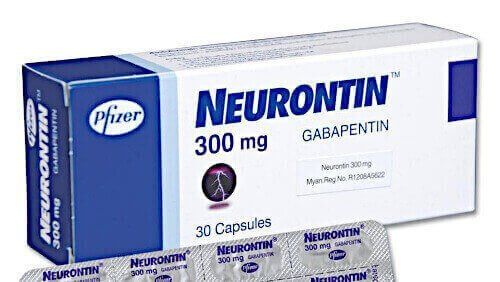Important Gabapentin Warnings
From Dr. Z - Carpal tunnel syndrome specialist
FDA Issues Gabapentin Warnings
The United States Food and Drug Administration (FDA) has issued gabapentin warnings when this drug is taken with opioids. The reason is because when taken together, the drugs may cause respiratory problems. The FDA's warnings include the popular nerve drugs Neurontin, Gralise, Lyrica, and Horizant.
The FDA says gabapentin capsules are indicated only for the following problems:
- Managing neuralgia in adults
- Adjunct therapy for seizures in adults and pediatric patients with epilepsy
FIND OUT: do you have carpal tunnel? No strings attached self-test.
Gabapentin & opioid use is dangerous
Gabapentin is the sixth most prescribed drug in the USA. So the FDA wants everybody to take notice.
The new gabapentin warnings are strong and direct. They result from incidences between 2012 and 2017, where the FDA said it received over 50 reports of "great concern".
The reports described respiratory problems associated with using gabapentin and pregabalin. They included 12 deaths.
Note that drug manufacturers are required to report such problems to the FDA. But for patients and doctors, reporting is completely voluntary. Therefore, many drug-related problems go unreported.
As a result, the FDA took a solid stand. On December 19, 2019, they issued the strong warning about respiratory problems for the following drugs:
- gabapentin (brand names are Neurontin, Gralise, Horizant)
- pregabalin (brand names are Lyrica and Lyrica CR)
Gabapentin is not the same chemical as pregabalin. But they're related, belonging to the class of drugs called gabapentinoids. And both drugs work in a similar fashion.
The regulators announced they now require pregabalin and gabapentin warnings on the drug packages to be stronger. The labeling must specifically caution about the potential breathing dangers.
The FDA said these drugs can be more dangerous than previously thought. Specifically, they said the drugs cause problems when combined with opioid painkillers or other central nervous system depressant drugs. The combination can harm the respiratory system of elderly patients or patients with preexisting respiratory diseases like chronic obstructive pulmonary disease (COPD).
Opioid painkillers already slow down breathing. So the risks of respiratory problems multiply in the elderly who have breathing problems or people with respiratory disorders. Compound this with the fact that gabapentin can stay active in your body for 5-7 hours. That's plenty of time for an adverse drug interaction to take place.
Doctors currently use these drugs to treat nerve pain, restless leg syndrome (RLS), and brain seizures. The updated FDA pregabalin and gabapentin warnings labels will tell healthcare providers to not prescribe those drugs at the same time as opioids.
New gabapentin warnings restrict their use
Gabapentin and pregabalin have been in use for decades. The FDA originally approved them for treating conditions such as:
- epilepsy
- pain from shingles
- diabetic neuropathy pain
- fibromyalgia
- stress & anxiety
- restless legs syndrome
Some doctors prescribe them to treat other conditions, too. But doing so is not approved by the FDA. These are called "off label" uses of the drugs. They include using them for:
- carpal tunnel syndrome
- panic disorder
- insomnia
- migraine
- mania
- social phobia
- alcohol withdrawal
- bipolar disorder
This off-label use is one reason these drugs are among the most prescribed in the USA. According to the FDA, in 2016 there were 13.1 million patients who filled gabapentin prescriptions. That’s up 63% from 2012. Similarly, 2.1 million patients filled pregabalin prescriptions in 2016.
Doctors were filling the "opioid gap"
In recent years doctors have not been prescribing opioids as much as before. That’s due to the national opioid epidemic. As a “replacement” they have been prescribing gabapentin and pregabalin for pain relief much more frequently. Hence the FDA's motivation for immediate warnings.
Dr. Douglas Throckmorton is deputy director for Regulatory Programs in the FDA's Center for Drug Evaluation and Research. He states in a news release, "Reports of gabapentinoid abuse alone, and with opioids, have emerged and there are serious consequences of this co-use, including respiratory depression and increased risk of opioid overdose death."
As a consequence, poison control centers are reporting increased phone calls involving gabapentin & opioid use. In fact, that’s how the FDA first learned of gabapentin and pregabalin abuse in combination with opioids, marijuana, and cocaine.
There’s another reason the problem didn’t come to the light quickly. That’s because the FDA does not consider Neurontin and Lyrica addictive. For that reason, regulators don’t monitor their use as closely as addictive drugs.
FDA mandates new clinical trials
Dr. Throckmorton announced,
"With the evolution of the opioid crisis, getting ahead of new concerns.... requires examining signs of
misuse and
abuse as soon as any signal emerges."
Therefore, along with the new pregabalin and gabapentin warnings about potential breathing dangers, the FDA issued additional mandates. The agency ordered drug manufacturers to perform very specific clinical trials.
The trials aim to assess the risk of abuse with these drugs. In particular, the drug makers must assess the risk involved when pregabalin and gabapentin are used in combination with opioids. Special consideration must go to monitoring respiratory problems in patients using these drugs with opioids.
Conclusion
The FDA issued strong pregabalin and gabapentin warnings to doctors about using these drugs in combining with opioids. The agency advises against taking pregabalin and gabapentin at the same time as opioids. The brand names concerned are Neurontin, Gralise, Lyrica, and Horizant. Taking them with opioids may result dangerous breathing problems, particularly if you already have respiratory issues.






